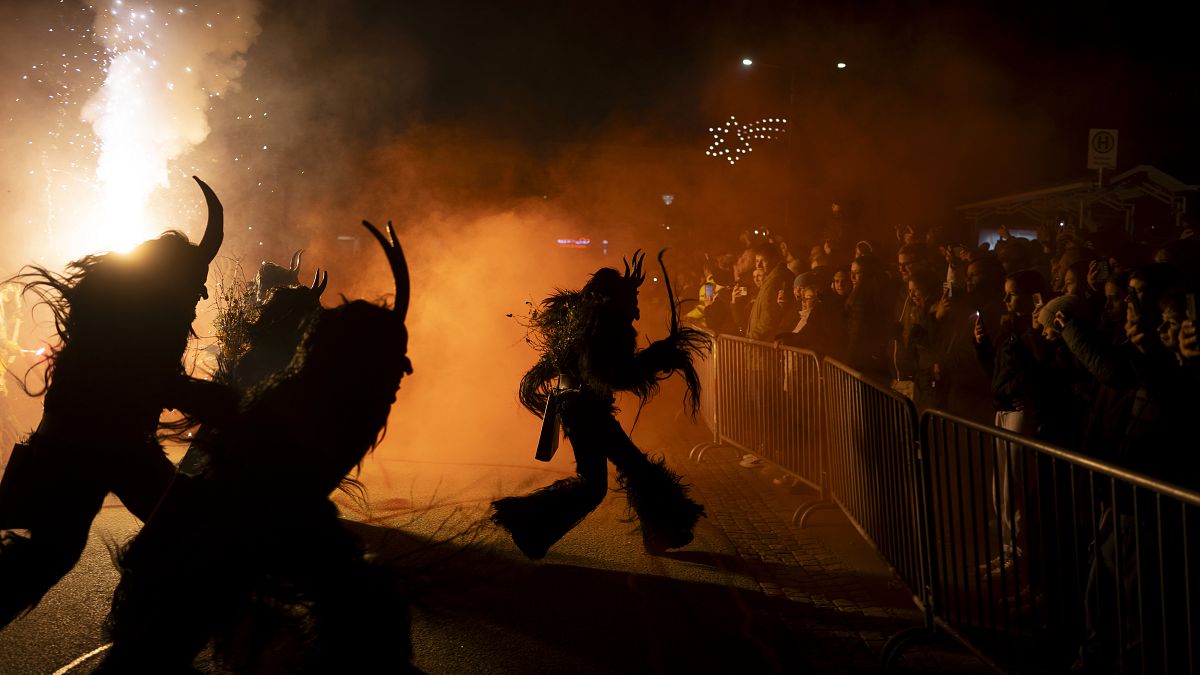In Austria and Germany, Krampus parades bring chaos and controversy. While the tradition is meant to scare children into behaving, recent events have left many injured — raising questions about safety and the darker side of festive customs.
In Austria and parts of Germany, Saint Nicholas, who visits on 6 December, is traditionally accompanied by the Krampus. While Saint Nicholas rewards well-behaved children with gifts, those who have misbehaved are punished by his fearsome, birch rod-wielding companion. The Krampus, with his devil-like appearance featuring horns and chains, has roots in mythology and evokes imagery of the fallen angel Lucifer.
To celebrate this tradition, annual Krampus and Perchten parades take place across Austria and southern Bavaria. During these events, members of Krampus clubs march through town centres, frightening onlookers and occasionally pulling spectators from the crowd to strike them with their rods. According to a report by Germany’s Die Zeit from 2019, Krampus performers have to follow some rules: the rods must be made from branches, they’re only allowed to hit bystanders below the knees, and excessive force is forbidden under both the penal code and the Krampus Code of Conduct. Nonetheless, incidents occur frequently — this year being no exception.
Several serious incidents at Krampus parades
Reports suggest that even before Advent weekend this year, serious incidents have already occurred in Austria. On Wednesday 27 November, a Krampus gathering in Zams, Tyrol descended into chaos, ending in a brawl involving around 50 people. Eight people were reportedly injured.
According to Tyrolean police, a 22-year-old woman was struck so hard with a wooden rod during a Krampus parade in Imst on Saturday that she required hospital treatment. Her left hand became so swollen from the blows that she was unable to move her fingers. Police are now searching for the unidentified assailant and have launched an investigation.
That same day in Anras, East Tyrol, a 51-year-old woman narrowly avoided losing the tip of her left middle finger. The police reported that “the victim’s hand got caught in the hinge of a safety barrier being pushed back and forth by her and a Krampus.” She was taken to Lienz District Hospital for treatment.
Krampus performers have also been targeted
It’s not just spectators who have been injured. Krampus performers themselves have also faced attacks. According to Der Standard, several incidents in Carinthia left four performers injured, one of whom lost consciousness.
Other incidents have involved audience members yanking on the horns of performers’ masks or hitting the masks themselves, leading to injuries among the costumed participants.
Violence against women disguised as tradition?
The debate over tradition and cultural practices is not confined to Austria. A recent report by Germany’s public broadcaster ARD highlighted the so-called “Klaasohm” custom on the North Sea island of Borkum, which takes place every 5 December.
Organised by the “Borkumer Jungens” association (Borkum’s boys-association), the event sees men dressed in fur masks and horns, accompanied by helpers and a “Wiefke” (a man in women’s clothing), parade through the streets. The men seek out young women, hold them down and strike them on the bottom with cow horns. This is accompanied by applause.
NDR reported that many islanders see the festival as a key part of their identity. However, women who have been targeted describe the experience as painful and humiliating. Some feel pressured to participate, while others try to avoid the event altogether. There have also been reports of assaults, where women are forcibly restrained and publicly stricken.
Despite criticism, 200 women on Borkum recently protested in favour of preserving the tradition, blowing cow horns and holding a banner that read: “We won’t let the Klaasohm festival be destroyed.”
Going forward, the festival is to take place without violence against women. Police have announced they will monitor the controversial event on Thursday with a heavy presence, according to a spokesperson.

